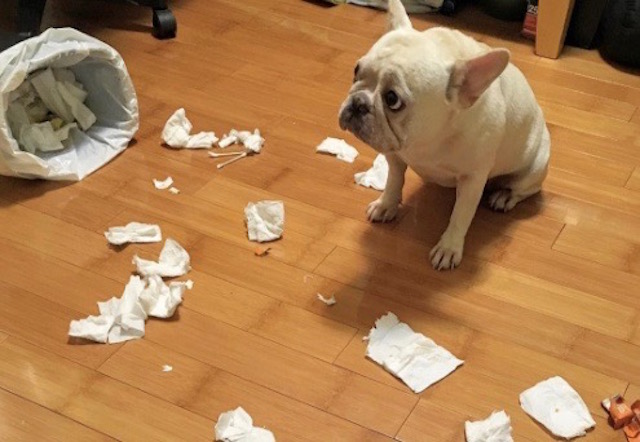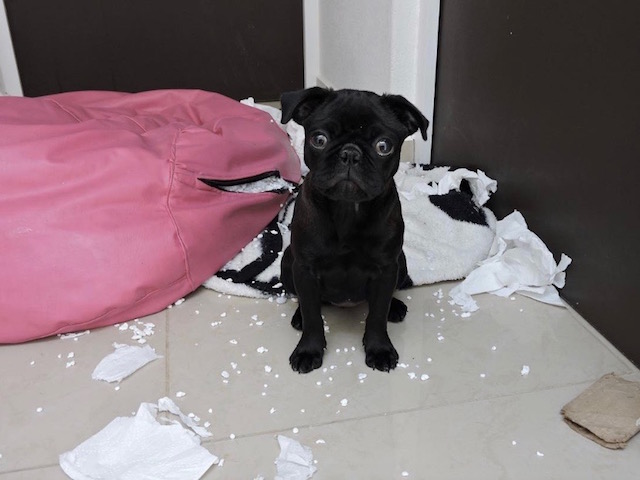Anxiety Disorder in humans is characterized by fear that impacts quality of life. Dogs feel fear too, of course. Fear is a normal response to a frightening stimulus, but normally is transient. Normal fear keeps an animal safe by helping him respond and escape from threatening situations. Only maladaptive fear causes self-harm or prolonged misery. Separation anxiety is when a dog responds fearfully when separated from their owner. It is a maladaptive fear disorder that can cause profound damage to the human-animal bond.

It is believed that certain dogs (and certain people, too) have brain chemistry more prone to anxiety disorders. In fact, fear does seem to localize to specific genes in animals.1 Environmental factors also are thought to play a role in the development of separation anxiety. Interestingly and importantly, lack of socialization for puppies and lack of exercise both played a role as risk factors for separation anxiety.² It is much more pleasant to prevent the development of anxiety disorder than to treat it once it has manifested.
In a dog’s quest to self soothe, he can become dependent on the presence of the owner to cause the release of calming hormones and starts to feel panic when separated from this dependence. Signs of separation anxiety in dogs can include: barking/whining, urinating/defecating, hiding, salivation and/or excessive activity. Sometimes animals will damage items or injure themselves.

If you have noticed your dog seems to suffer from separation anxiety, it is critical that you involve your veterinary team. Because medical disorders can exacerbate the condition, a complete diagnostic work up should be completed. A treatment plan of medications and behavior modification will need to be formulated for you and your dog. The entire family will need to learn steps to help this problem, but help is available. This heartbreaking level of stress and anxiety must be addressed for the pet’s sake and yours.
If you are raising a puppy, daily exercise and proper socialization are critical in healthy development and will help minimize your puppy’s chances of developing issues with separation anxiety. Don’t skimp on these important components of puppyhood, even if it is hard to get in every day. These activities are important every single day and are an investment in your puppy’s future. Ask anyone who is managing a dog with separation anxiety and they will tell you how challenging it can be.
Fortunately, daily exercise is fun for pets and people and making sure that your dog is well socialized by exposing him to lots of sights, sounds and people is super fun too!
- Geneticmapping of canine fear and aggression. BMC Genomics. 2016 Aug 8;17:572. doi: 10.1186/s12864-016-2936-3.Zapata I, Serpell JA, Alvarez CE.
- Early Life Experiences and Exercise Associate with Canine Anxieties.PLoS One.2015 Nov 3;10(11):e0141907. doi: 10.1371/journal.pone.0141907. eCollection 2015.Tiira K, Lohi H.
